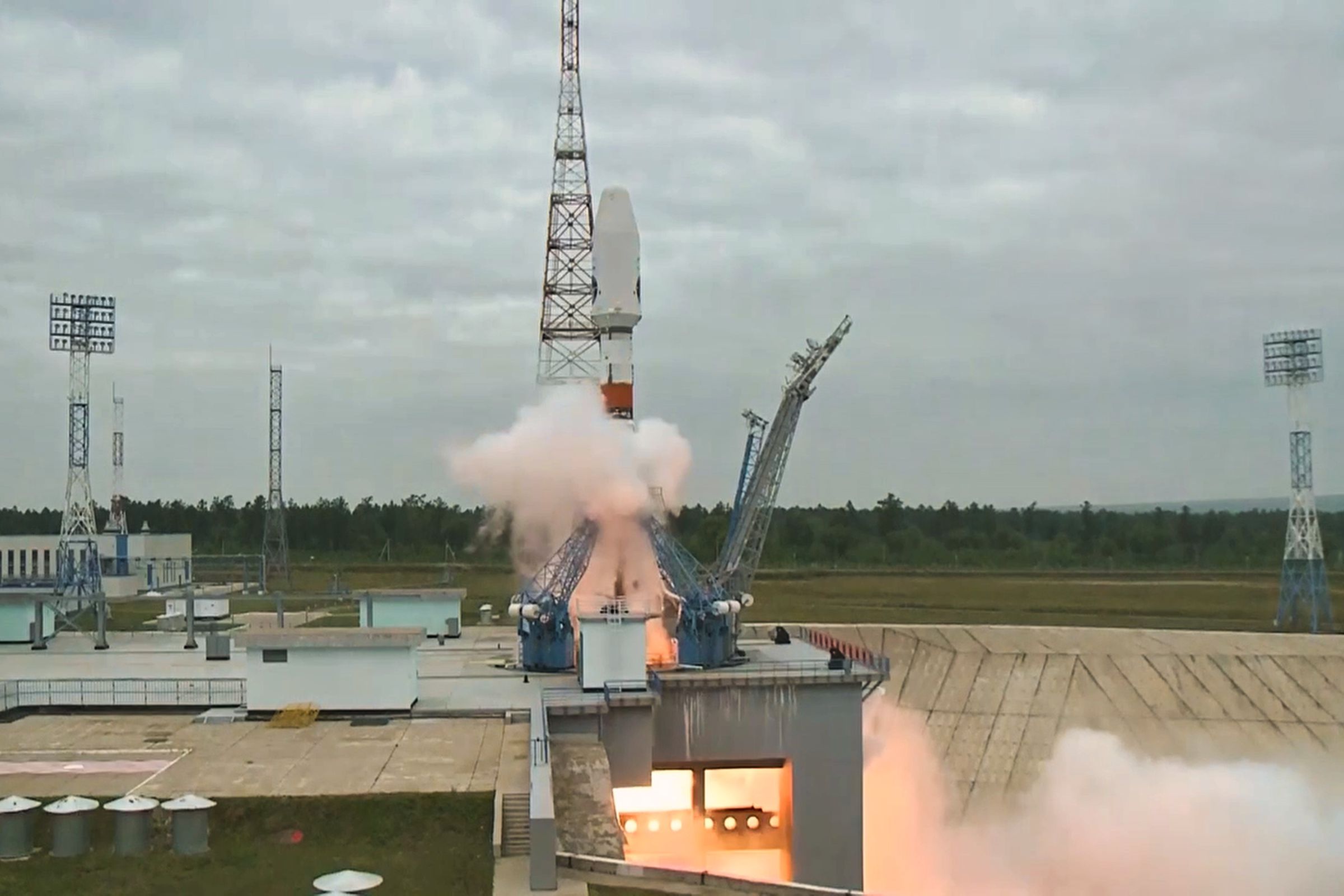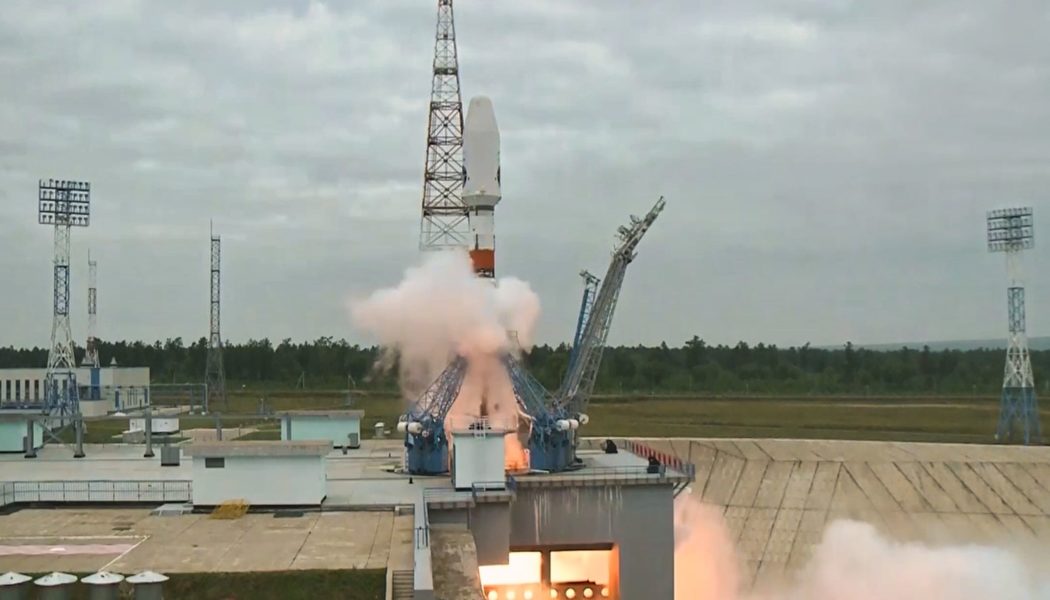Russia’s first Moon-landing attempt in almost 50 years has ended in failure.
Share this story

Russia’s Luna-25 spacecraft failed to land on the Moon, Roscosmos, Russia’s state-run space corporation, announced today. In a statement, the organization reported that the lander “ceased to exist as a result of a collision with the surface of the Moon.” It would’ve been the country’s first Moon landing since 1976.
Luna-25 entered orbit around the Moon last week, and was meant to orbit for just five days before landing on Monday, August 21st, but over the weekend, Roscosmos said it was analyzing a “technical glitch” that occurred as it was preparing the craft to move to a pre-landing orbit. Now the organization says Luna-25 has been lost.
Russia was pushing to beat India’s Chandrayaan-3 mission to land on the Moon. That spacecraft also made lunar orbit this month, and the country’s space agency, Indian Space Research Organization (ISRO), tweeted this morning that Chandrayaan-3 is set for its own Moon landing on August 23rd. India plans for it to set down on the Moon’s south pole — the same region of the surface targeted by Luna-25 — on August 23rd. If successful, it will be the first spacecraft to land on the Moon’s south pole.
Luna-25’s mission, after landing, was to study the Moon’s south pole ice to gain insight into the satellite’s formation. Analysis of the ice would let scientists “theorize on how water appeared on the surface of the Earth’s natural satellite and whether this process was linked to the emergence of water on the Earth,” according to a scientist quoted by the state-owned Russian news agency TASS. The unnamed scientist said the study would help determine whether the Moon formed independently, or if it was instead blasted apart from the Earth by an extraterrestrial impact.
Luna-25’s Moon-bound mission began in 2015, and this landing was meant to be a precursor to an eventual crewed mission to the Moon in 2029. This mission is an unfortunate setback for Roscosmos, which Russia has starved of funding in favor of its military, writes BBC.
Landing on the Moon is no mean feat, and efforts to do so are frequently met with failure and disappointment. Earlier this year, Japanese startup ispace lost contact with its Hakuto-R Mission 1 lander after a three-month trip, and an Israeli Moon-landing mission ended in catastrophe in 2019 when the Beresheet spacecraft’s engine failed during final descent. The ISRO also reported a failure the same year as it lost contact with the Chandrayaan-2 Vikram lander as it crashed on descent.
The United States is currently planning a crewed Moon landing for 2025.









